This is my third and last post about Montpelier’s flood, the first bonafide federal disaster I’ve ever lived in and witnessed first-hand.
Seven weeks later, the flood doesn’t rate the national news anymore. The early, fun photos of drowned streets, the flashy videos on TV, the press clamoring at the water’s edge – we were famous! High drama!
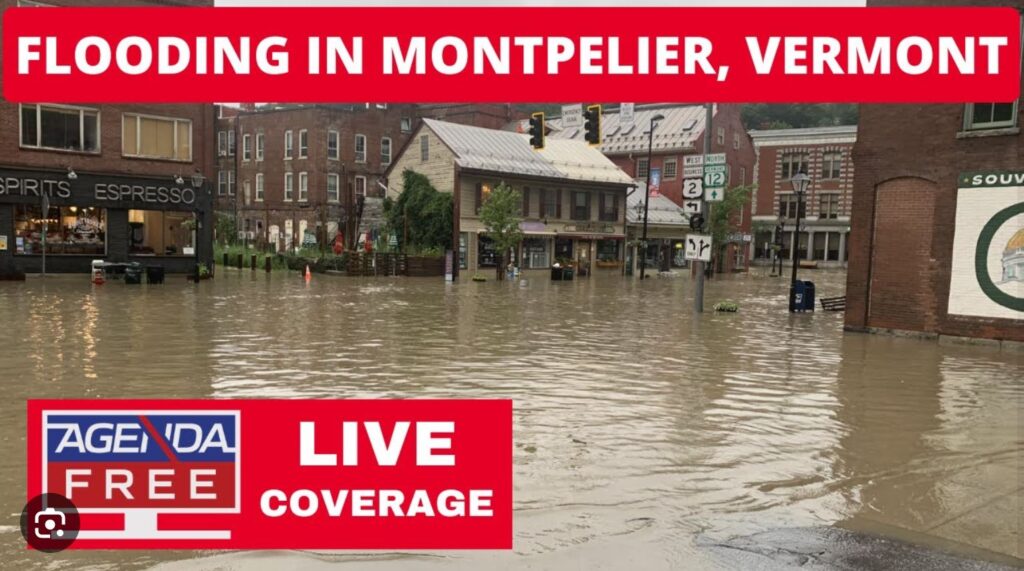
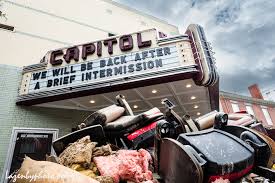
In fact, the real, human drama happens after the water subsides. That’s when people have to take stock, sort out their lives — their morale and money — and dig out their sopping homes or stores. After the water came the debris — the streets were choked with rubble as hundreds of volunteers carried stuff out of basements and ground floors. After a month or so of our living in a landfill, over 2,500 tons of debris got hauled away. Hard work, and pretty sad.
Then there’s the silt. Just the way dust permeated everything in Oklahoma in the 1930’s, the silt settled on every surface and deep into every crack, polluted with septage and heating oil. Where the waters didn’t bring it, it arrived airborne on drier days, in clouds brought up by cars and heavy equipment. Your tabletops and floors are lightly filmed with it. You breathe it and eat it. Move your jaw, and your teeth grit faintly.
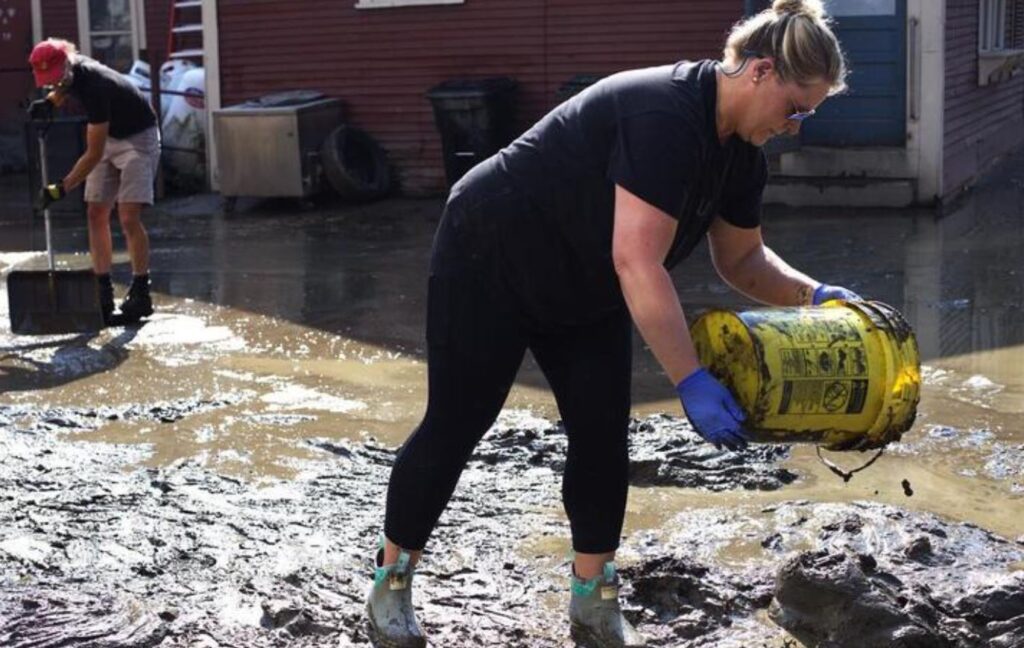
After the furniture and other debris is removed, then you start replacing floors and walls: more rubble and trash piled at the curb — those creaky wooden floors we once loved, the paint-layered plaster. And then the carpenters and plumbers, masons and electricians take over. Montpelier is paradoxical — a busy ghost town, with stores gaping or boarded over, but with an army bustling to repair and rebuild.

Unforeseen, for me, was that after nearly drowning in the river, we then nearly drowned in red tape, as FEMA, the SBA, insurance companies, and other entities glitched and fumbled toward helping us, or fighting us (those who had drowned cars or property claims, as I did). Seven weeks on, most of those glitches are resolving, too.
As of today, a handful of downtown entities are functioning. The fire station is up and running again. It was a bit spooky when the station and some engines were flooded, especially with ruptured gas lines and drowned electrical cables abounding. A whole town vulnerable to fire as well as flood — I thought of New Orleans’ Garden District aflame while still drowning in Katrina’s tidal surge.
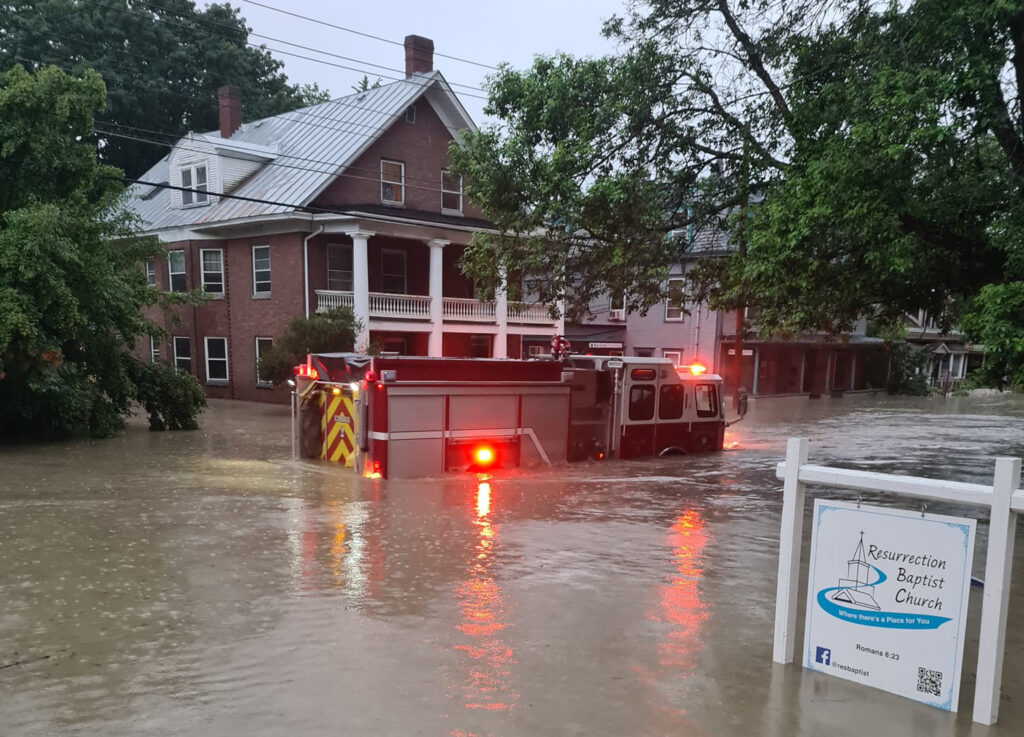
Today, I can go to my choice of three or four restaurants. Capital Stationers is back open, so we can buy pens and paper! Every day, another business re-opens, another pile of rubble is removed. As Joan Baez sang, “They always find money for floods.” You likely have to borrow it, but it’s probably there if you can burrow through the red tape.
My eighth novel just came out – ironically, a book with a lot of swimming in it. As a writer, I was particularly concerned about the survival of our library and our beloved bookstore, Bear Pond Books.
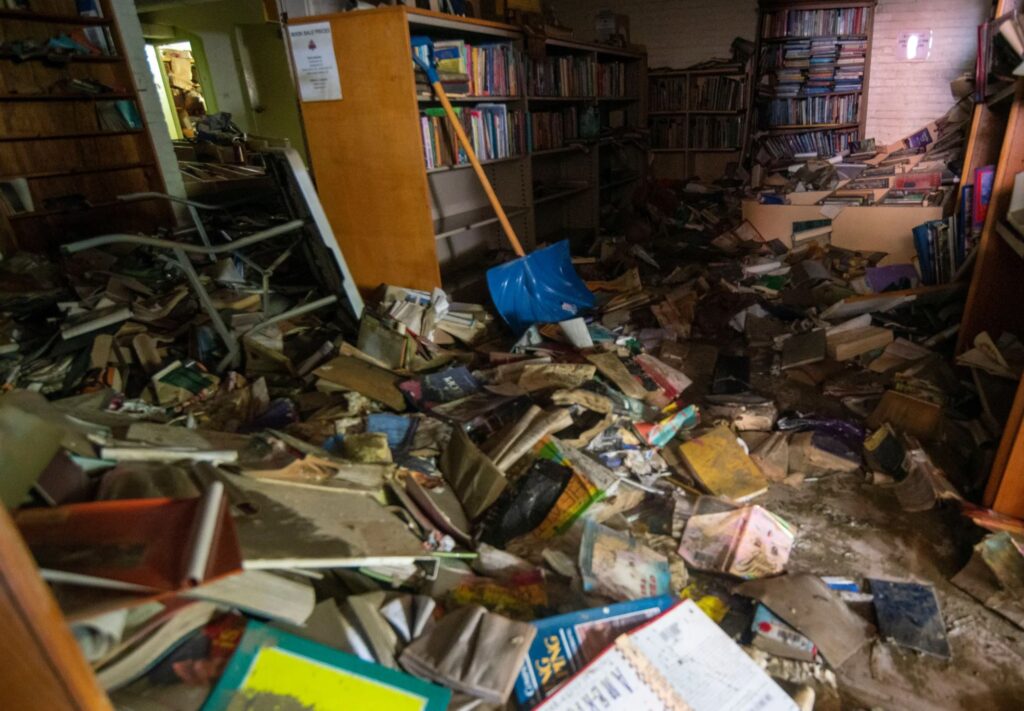
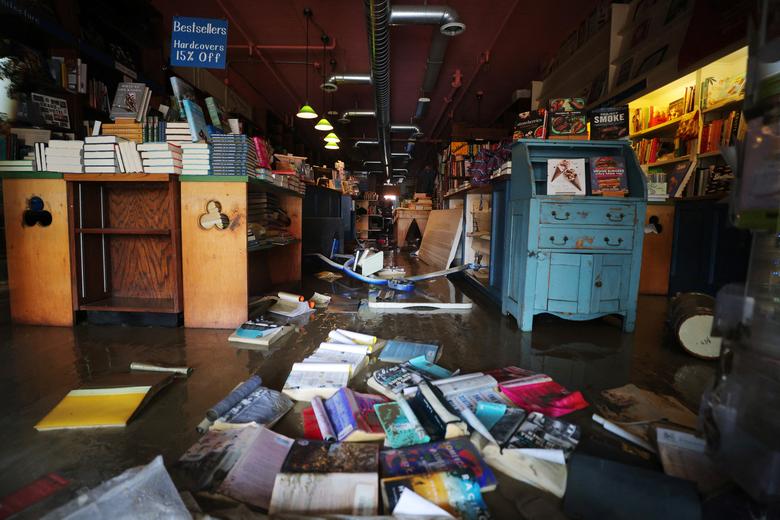
But book lovers are stalwarts. They’ve survived burnings and bannings and pandemics, and it looks like they can even survive floods. I’m very pleased that Rob and Claire decided to stick with Bear Pond after 35 sometimes tough years running the place, especially since they will be sponsoring the celebration and kick-off reading for my just-published eighth novel, The Body Below, on September 14.
I invite neighbors and friends to join me and Bear Pond at the North Branch Café, which also reopened, for wine and food, reading and conversation, to celebrate the amazing durability of our stubborn little town. It’s at 7 p.m., Thursday, Sept. 14, at 41 State Street. Montpelier — a opportunity to hear and talk about literature and to re-connect with community.

